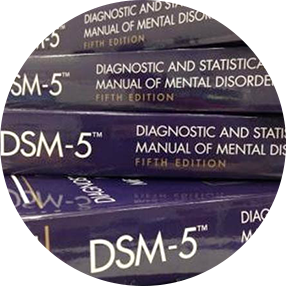Schizophrenia
What is schizophrenia?
Schizophrenia is a serious, complex brain disorder. It often runs in families and can cause troubling symptoms. These may include hearing voices, and having trouble thinking clearly and relating to others. It often starts suddenly in early adulthood. There is no cure for this illness, but it can be managed with medicine and supportive therapy.
What causes schizophrenia?
Schizophrenia is caused by a chemical imbalance and other changes in the brain. It tends to run in families, but the environment may also play a role.
While it affects men and women the same, symptoms tend to start earlier in men than in women. It’s rare in childhood.
What are the symptoms of schizophrenia?
Each person may feel symptoms differently. These are the most common symptoms:
- False beliefs not based on reality (delusions)
- Seeing, hearing, smelling, or feeling things that are not real (hallucinations)
- Disorganized speech and behavior
- Lack of emotion
- Feeling like someone or something is out to get them (paranoia)
- Withdrawal from others
- Inflated self-worth
These symptoms can make it very hard to function in the world and take care of yourself. People with this illness are usually not violent.
The symptoms of schizophrenia may seem like other problems or mental health conditions. Always see your healthcare provider for a diagnosis.
How is schizophrenia diagnosed?
To diagnose this disease, your healthcare provider will ask about your medical history and symptoms. You may also have a physical exam. You may also have lab tests to rule out other conditions.
Mental healthcare providers diagnose and treat this illness. They often interview family members. This helps the healthcare team get a complete picture of the symptoms.
How is schizophrenia treated?
Managing schizophrenia is a lifelong process. It can’t be cured. But symptoms can often be managed with medicine and therapy. Often, more than 1 medicine and therapy method is needed. Types of treatment that may be helpful include:
- Antipsychotic medicines. These are the main medicines used to reduce the most troubling symptoms such as delusions, hallucinations, and paranoia.
- Other medicines. These may include antidepressants, mood stabilizers, or anti-anxiety medicines.
- Therapy. Individual and family therapy (including cognitive and behavioral therapy).
- Training. These may include learning social skills, job skills, or structured activity.
- Self-help and support groups. These can help both you and your family members.
Early treatment and supportive services helps affected people live productive lives. It’s very important to take medicines exactly as prescribed and to keep taking them even if you feel better. Many people may still have some symptoms, even with treatment. At times, symptoms may get worse and treatment will need to be adjusted. Ongoing treatment and follow-up in a supportive environment can help maintain emotional stability. It can also provide a critical safety net if symptoms become unmanageable.
Contact Dr. Fogelson’s office to schedule an appointment for a Schizophrenia evaluation.

